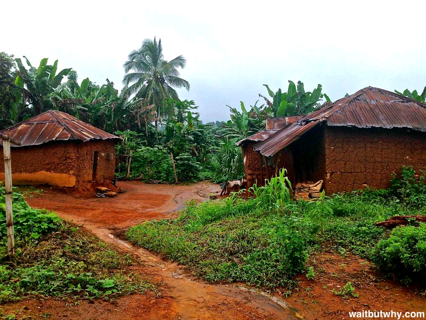Remembering Igbo religious history . Pre / post colonial expression.

The Igbo traditional religion , like other indigenous religions practiced in most African communities elevated myths , legends and outright superstitious beliefs and practices to a place of prominence . It was hinged on a theological belief of heirarchy of divinity that could be illustrated with a pyramid .At the apex of the pyramid is the Supreme God - "Chiukwu." His leutnants may find placements on the middle and up to the base . These include the various deities that are offered sacrifices and supplication for onward travel to the Supreme God .These dieties are immanent and they play intermediary roles between the worshipper and the Chiukwu who is transcendent and inaccessible . Some where in the middle is a place for a spirit entity known as the ancestors. These were human members of the community who have departed to the world beyond . They are on a journey to deitification which will be dependent on whether or not they were given a " befitting ". funeral or " Rite of passage ' Ancestors or ancestorsk worship as a concept needs more elaboration due to its strategic importance in Igbo cosmology .Some people have described ancestors as the " living dead ." Maybe , more preferably " dead living " This is because They are seen as the custodians of the community. They guard the community from infiltrators - by malevolent spirits as well as wicked humans . The walls that separate the living and the dead were only ephemeral . The people maintain an unbroken communication between themselves and the departed . The ancestors are preeminent in most of their activities and that is why it is common to observe elderly or titled men pouring out a little quantity of drinks and or throwing bits of cola nuts as well as other food items to the ground during events or meetings . The idea stemmed from the reverence and awe with which they hold the forbearers or ancestors . The spirit beings must be served ahead of the living . This practice is different from the practice of libations . Libations are technically prayers . The objective behind libations is to invoke the spirit beings - The various deities believed to be in charge of the community. The ancestors who are seen as the closest to the living also fall within this category although they possess less power and influence . A look around most of these communities will reveal the presence of the following : Huts , with inscriptions and carvings or insignia depicting various objects . These huts are situated in strategic positions and surrounded by particular trees and shrubs with equally sacred significance . The huts are primarily places of worship for adherents of traditional cults or religions . Items brought , such as livestock or food items etcetera , by worshippers are either slaughtered or prepared on the deity's altar .
However , huts constructed for ancestors are less in size and not elaborately decorated . This is in line with their placement in the heirarchichal order spirits . In many villages and communities , ancestors are made to inhabit very little huts not big enough to contain five live chickens.
While these huts are built and cited in the frontage of the house of the first son in many communities , others tend to house their ancestors at less visible portions of their houses , especially at their back yards .
Follow Story Tella to stay updated on their latest posts!
0 comments
Be the first to comment!
This post is waiting for your feedback.
Share your thoughts and join the conversation.
